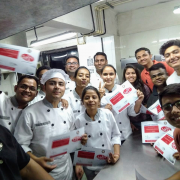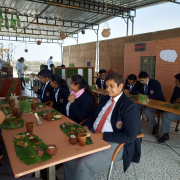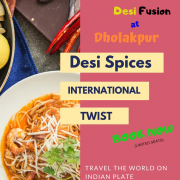“Grow green, go Green” – Afforestation by JSHMites
Self-appointed eco-Warriors of Vadodara; fifty students of the� Jindal School of Hotel Management, planted 100 trees at the Xavier Green School, Wagodia. This tree plantation initiative is named “Grow green, go Green”.
“Grow green, go Green” was supported, encouraged and technically guided by the Founder of Xavier Green School, Father Jolly Nadukudiyil. Fr. Jolly is Prakruti Ratna Award winner and has also been felicitated with the VNM Environmental Excellence Award in 2016.
The “Grow green, go Green” project by the third year students of�BBA in Hotel & Tourism Management�is being counted as a practical step towards becoming a carbon-neutral organization. The 100 trees planted on the day will reduce 2,200 kilograms of carbon dioxide from our atmosphere every year. The trees planted in this program are Goras Amli, Banyan, Arjuna and Neem that rank top as natural air purifiers.
During the event, each participating student took a pledge to care and protect the trees as their own children.
Motivated with the goal to build an urban forest within the city, the students carefully planted each of the trees under the scorching Sun. Students earned a pleasant reward for their hard day’s toil; nature walk around the Xavier Centre of Eco Harmony. Nature walk around this 39-acre campus with 70,000 trees is a wholesome experience for city-bred students.
In this practical outdoor session, the students of the Jindal School of Hotel Management learnt about real-time sustainable hospitality practices that every responsible hotelier must practice to our world a greener and better place.



